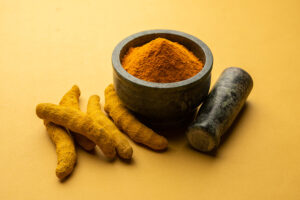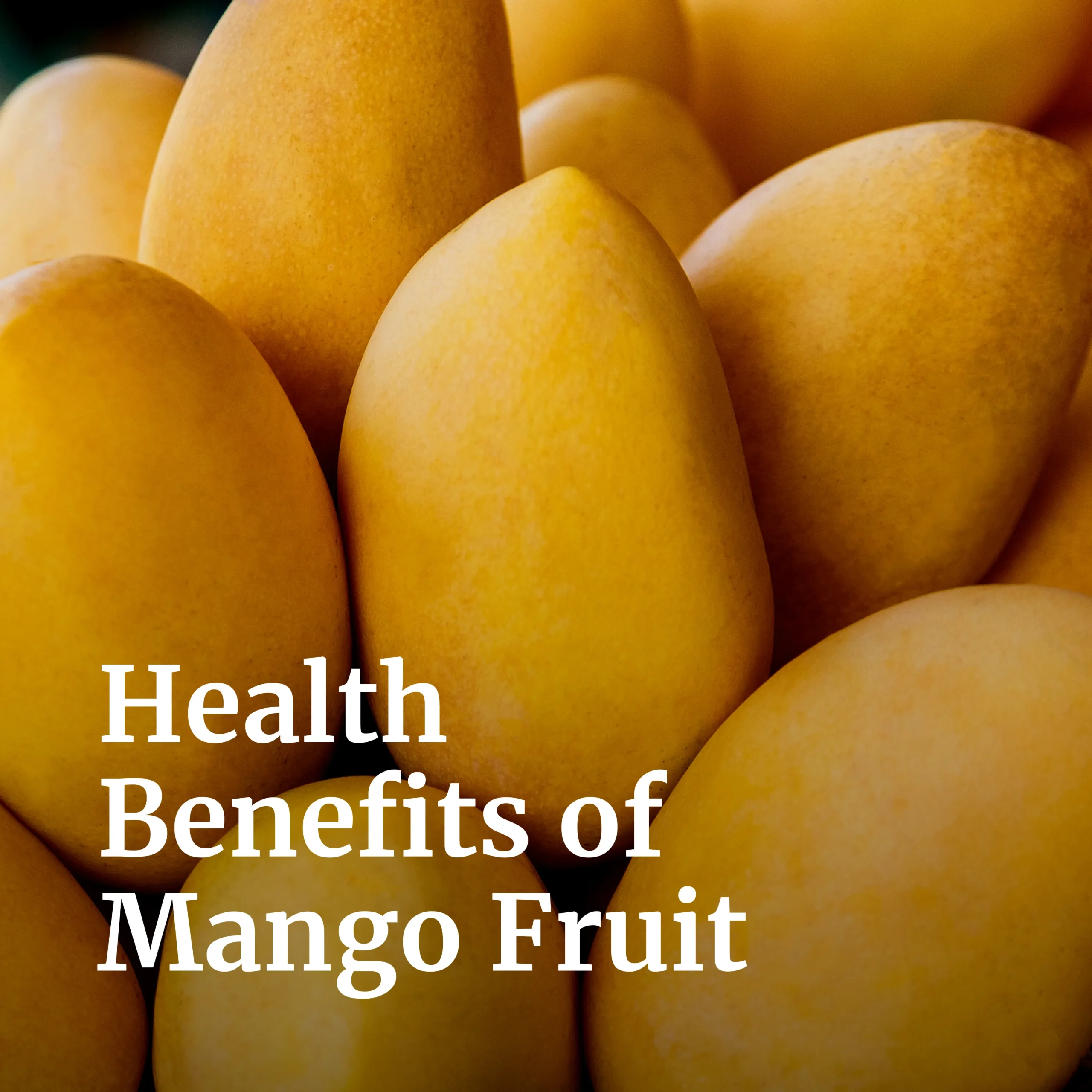Subconsciously, mangoes are seen as a “guilty” pleasure
They’re often labelled as weight-gaining, overly sweet, and among the most tampered-with fruits when it comes to ripening agents and enhancements (which, to be fair, can sometimes be true). They’ve somehow earned the reputation of being the “less healthy option” of the fruit world.
Juicy fruits like oranges are known for their vitamin C, apples are literally associated with keeping the doctor away, and berries are celebrated as antioxidant powerhouses. Mangoes? Not quite the same hype, despite how beloved they are.
As mango lovers, we think it’s time to set the record straight. Mangoes might seem like the unhealthier fruit option just because they’re that delicious; and because they appear for just a few fleeting months each year.
Health Benefits of Mango Fruit
Mangoes aren’t just tasty, they offer a variety of health benefits. Below are some of the top perks of eating this fruit:
Nutritional Composition of Mangoes
If you’re counting calories, good news; mangoes can fit into a balanced diet without trouble. The calories in 1 mango without skin (the edible flesh of a ~200 gram mango) are roughly in the 120–135 range, depending on the fruit’s size and variety.
This is quite moderate for a fruit that tastes so sweet. For comparison, a medium-sized apple has about 95 calories and a banana ~105 calories. Mangoes are on par with these – slightly higher, but still light.
Mangoes also have a low calorie density, meaning you get a lot of volume and nutrients for relatively few calories. In fact, one cup of sliced mango (165 g) provides fewer than 100 calories while offering plenty of vitamins and fibre.
It offers around 1.4 grams of protein and 24.7 grams of carbohydrates, of which 22.5 grams are natural sugars. Despite being low in fat (only 0.6 grams), it packs 2.6 grams of dietary fibre.
Mangoes are an excellent source of vitamin C, fulfilling 67% of your daily recommended intake. They also provide:
- 20% of the Daily Value (DV) for copper
- 18% DV for folate
- 12% DV for vitamin B6
- 10% DV each of vitamins A and E
- 7% DV of niacin
- 6% DV of both potassium and vitamin K
- 5% DV of riboflavin
- 4% DV each of magnesium and thiamine
This makes mango not just a sweet treat, but also a nutritious addition to your diet.
Mangoes Help Breakdown Carbohydrates
One lesser-known fact is that mangoes even contain natural digestive enzymes (amylases) that help break down carbohydrates, especially as the fruit ripens. This, combined with their fibre, makes mangoes gentle on your digestion and may help if you’re looking to keep your gut happy.
Fresh Vs. Dried Mango: Which is healthier?
Fresh vs. dried mango: watch out for the difference. Fresh mango is low in calories, but dried mango (with the water removed) is much more concentrated. For example, one cup of fresh mango is <100 kcal, but one cup of dried mango can pack over 500 calories. If you love dried mango, enjoy it in moderation (a few pieces), or stick to the juicy fresh slices for a lighter option.
Immune Support
Mango is rich in nutrients that bolster your immune system. Vitamin C is the star here, a cup of mango gives you about two-thirds of your daily C, which helps your body fight infections and keep your cells healthy. Mango also provides vitamin A (about 10% DV per cup), which is essential for immune function and maintaining healthy skin and mucous membranes (your body’s first line of defence).
Good For Digestive Health
Eating mangoes can be good for your digestion. They offer roughly 2–3 grams of dietary fibre per serving, which aids regular bowel movements and feeds beneficial gut bacteria. This combination of fibre and natural enzymes (amylases as mentioned earlier) means mangoes can help keep you regular and might prevent constipation more effectively than fibre alone, according to some research.
Helps with Heart Health
The nutrients in mango support a healthy heart. Mangoes provide minerals like potassium and magnesium that help maintain normal blood pressure and heart rhythm. They’re also free of sodium and cholesterol. The antioxidants (like mangiferin and quercetin) in mango may help reduce oxidative stress and inflammation in blood vessels, potentially lowering the risk of heart disease. While more human research is needed, animal studies suggest mangiferin could protect heart cells from damage. At the very least, swapping sugary desserts for a piece of mango is a heart-smart choice.
Eye Health
You might not think of fruit and eyesight together, but mangoes can be eye-friendly. They contain beta-carotene (which converts to vitamin A) and pigments like lutein and zeaxanthin. These antioxidants accumulate in the retina and help protect your eyes. Lutein and zeaxanthin in mangoes act as natural sunglasses, filtering harmful blue light and may help prevent age-related macular degeneration. Meanwhile, vitamin A in mangoes supports good vision and helps prevent night blindness. So, enjoying mango regularly can contribute to keeping your vision sharp.
Anti-oxidant Protection
Mangoes are packed with polyphenols, including a unique one called mangiferin. Mangiferin has earned the nickname “super antioxidant” because it’s especially powerful at combating free radicals. Antioxidants protect your cells from oxidative damage, which is linked to ageing, cancer, and chronic diseases. Some studies even indicate mangiferin has anti-inflammatory and anti-cancer potential (in lab tests). While eating a mango isn’t a magic cure, getting these antioxidants through delicious fruit is certainly a plus for your health.
Blood Sugar Control
Despite their sweetness, mangoes have a relatively low to medium glycaemic index (around 51–60). That means they don’t spike blood sugar as rapidly as high-GI foods. In fact, research shows eating fresh fruit (like mango) is associated with a lower risk of developing type 2 diabetes. Mango’s fibre and polyphenols likely help slow sugar absorption. Of course, if you’re diabetic or watching sugar, stick to moderate portions (about one cup at a time). But there’s no need to fear this fruit in moderation; mango can fit into a diabetes-friendly diet. Just avoid large amounts in one go, and favour fresh over dried to keep sugar intake reasonable.
Mangoes are a delicious, nutritious fruit
Mangoes are a delicious, nutritious fruit that offer a lot more than just tropical sweetness. They provide a moderate calorie boost along with vitamins (especially C and A), minerals, and antioxidants. From supporting your immune system and heart, to aiding digestion and even enhancing your skin, the health benefits of mango are impressive. Any side effects or concerns are minor and easily managed by enjoying mangoes in sensible portions.
So go ahead and indulge in a juicy organic mango when it’s in season. Whether you blend it into a smoothie, toss it in a salad, or eat it fresh off the peel, you’ll be rewarding your taste buds and your body. This golden fruit truly proves that healthy food can taste like a treat. In moderation, organic mangoes can be a daily delight that brings you sweetness, nutrition, and a touch of sun-kissed wellness.
Enjoy the goodness of real, organic, GI-certified premium quality mangoes from Aamrai Organic, click here to know more.






